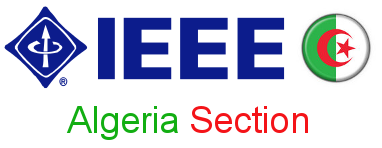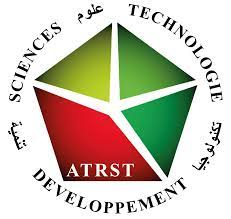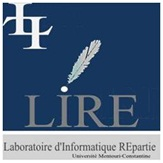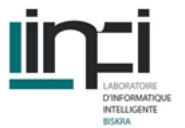International Conference on Theoretical and Applicative Aspects of Computer Science, Skikda 2021
ICTAACS'21 ON IEEE:

About
The ICTAACS'21 like ICTAACS'19, CTAACS'12 and CTAACS'13 which are the previous editions, covers theoretical and practical aspects related to Computer Science. The aim of this conference is to give researchers the possibilty to share and exchange their new ideas, research results and experiences about different specialities of Computer Science.
The ICTAACS'21 will be held in Skikda, Algeria from 15-16 December 2021. It's co-organized by the Computer Science department of the 20 Août 1955-Skikda University, the LICUS (Laboratoire d'Informatique et de Communication de l'Université 20 Août 1955-Skikda), the MISC (laboratory of Modélisation et d'Implémentation de Systèmes Complexes, Abdelhamid Mehri-Constantine 2 University), the GLIA team of the LIRE (Laboratoire d'Informatique REpartie, Abdelhamid Mehri-Constantine 2 University) and by the LINFI (Laboratoire d'INFormatique Intelligente, Mohamed Khider-Biskra University).
The target audience for ICTAACS'21 ranges from Teacher-Researcher to PhD students and Master students. They will also be encouraged to present their research, to self-evaluate and to increase the visibility of their work within the IT community.
Extended versions of best selected papers will be published in the following Special Issue On: Scalability and Scaling-up in Collective Computing and Collective Intelligence of the indexed International Journal of Organizational and Collective Intelligence (IJOCI).
Scientific topics (but not limited to)
- Advanced databases
- Information systems architectures
- Data warehouses
- Information systems integration
- Information systems analysis and specification
- Multimedia database applications
- Database security and transaction support
- Object-oriented database applications
- Distributed database systems
- PDMS (P2P data management systems)
- Enterprise resource planning
- Enterprise-wide client-server architecture
- Security and privacy in cloud computing
- Component-based software engineering
- Component based Agents
- Requirements engineering
- Software architectures
- Real-time software engineering
- Agent-based software system
- Software maintenance, reuse, and legacy systems
- Software quality assurance
- Formal methods and formal approaches to software development
- Modeling, design, and engineering of distributed systems
- Complex and multi-agent systems
- Foundations and formal methods for distributed systems
- Animated pedagogical agents
- Advances in networking and web based applications
- Information and network security
- Cloud computing and pervasive systems
- Autonomic agents
- Bayesian networks
- Strategic decision support systems
- Evolutionary programming
- Adaptation, self-organization, and emergence in complex systems
- Image processing, segmentation and registration
- Motion, Object Tracking and Video Analysis
- Medical and application dedicated image analysis
- Energy Minimization based Vision
- Data mining and machine learning
- Distributed and Collective Vision
- Data and knowledge engineering and modeling
- Image and multimedia search and retrieval
- Data classification and clustering
- Sensorial information and knowledge engineering and modeling
- Signal, speech and time series analysis, recognition and retrieval
- Image analysis, scene understanding and character recognition
- Open and smart government
- Smart cities, smart homes
- Smart grids and the Internet of things (infrastructure, transportation, governance, environment, health care, safety, security, and energy)
- Smart devices and their novel use in public management
- Smart (technology-facilitated) practices such as payment systems, identification systems, etc.
- Smart city (governance) and emerging technologies (IoT, big data, open data, social media & networks)
- Wireless communications and networks in smart cities
- Sensing technologies for smart cities
- Green multimedia wireless networks for smart cities
- Artificial intelligence
- Big Data and Data sciences
Keynote Speakers
Pr. Djamel Eddine Saidouni
Djamel Eddine Saïdouni obtained his BEng degree from the University of Mentouri Constantine, Algeria (1990). After that, he joined the LAAS/CNRS Laboratory, Toulouse, France where he prepared his DEA (Diplôme des Etudes Approfondies) in communicating systems. He obtained his PhD in theoretical computer science and concurrency from the University of Paul Sabatier, Toulouse, France (1996). He is currently a Full Professor and a permanent researcher at MISC Laboratory Computer Science Dept. at University Abdelhamid Mehri Constantine 2, Algeria. His main research concerns ambient systems, distributed algorithms, formal specification models, formal verification approaches and their application for complex distributed and real-time systems.
Dr. Mohamed Amine Ferrag
Dr. Mohamed Amine Ferrag received the Bachelor's degree (June, 2008), Master's degree (June, 2010), Ph.D. degree (June, 2014), HDR degree (April, 2019) from BadjiMokhtar- Annaba University, Algeria, all in Computer Science. Since October 2014, he is a senior lecturer at the Department of Computer Science, Guelma University, Algeria. His research interests include wireless network security, network coding security, and applied cryptography. He is featured in the Stanford University's list of world Top 2% scientists for the year 2019. He has been conducting several research projects with international collaborations on these topics. He has published more than 70 papers in international journals and conferences in the above areas. Some of his research findings are published in top-cited journals, such as the IEEE Communications Surveys & Tutorials, IEEE Internet of Things Journal, IEEE/CAA Journal of Automatica Sinica, IEEE Transactions on Engineering Management, IEEE Access, Journal of Information Security and Applications (Elsevier), Transactions on Emerging Telecommunications Technologies (Wiley), Telecommunication Systems (Springer), International Journal of Communication Systems (Wiley), Sustainable Cities and Society (Elsevier), Security and Communication Networks (Wiley), and Journal of Network and Computer Applications (Elsevier). He is currently serving on various editorial positions such as Editorial Board Member in Journals (Indexed SCI & Scopus) such as, Security and Communication Networks, IET Networks, International Journal of Internet Technology and Secured Transactions (Inderscience Publishers), and MDPI Journal of Sensor and Actuator Networks.
Contact
- Phone number : +213 06 56 11 95 72
- Fax : +213 038 72 31 13
- Email : s.boulehouache@univ-skikda.dz
SPONSORS








